Reviews and recommendations are unbiased and products are independently selected. Postmedia may earn an affiliate commission from purchases made through links on this page.
Vancouver’s Afghan Horsemen marks 50 years of food, family, friends
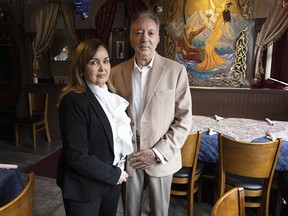
It began as a small coffee-and-sandwich shop on Broadway and Cypress and is believed to be the oldest Afghan restaurant in North America.
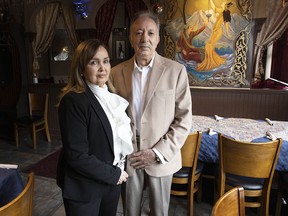
Article content
When Freba Rezayee, an Olympic judoka from Afghanistan, fled her native land for Vancouver in 2011, one of her most pleasant surprises was discovering the Afghan Horsemen restaurant.
“I love how they represent Afghanistan and Afghanistan culture,” Rezayee said. “I am biased here, but I think Afghan food is delicious.
“We have a rich culture, we have a rich history, and we have art, we have poetry, we have community, and the Afghan Horsemen really represents that.
Advertisement 2
Article content
“I’ve been there a countless number of times.”
As have three generations of Vancouverites.
The Afghan Horsemen, which began as a small coffee-and-sandwich shop on Broadway and Cypress, celebrates its 50th anniversary this year.
Tucked in on the second floor at 1833 Anderson St. near the entrance to Granville Island, owners Razia and Zaher Nasiri understand theirs to be the oldest Afghan restaurant in North America, one that over the years has drawn the interest of Time magazine and the late Anthony Bourdain.
Paintings and tapestries from the Old Country adorn the Afghan Horsemen’s walls of rich red; royal blue tablecloths rest below ornate lamps; hookahs line the picture-window sill.
The restaurant seats 110, with room for another 65 on the patio, but it feels intimate.
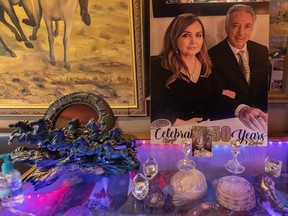
Afghanistan has been like a soccer ball kicked around by competing empires since Alexander the Great conquered Persia in 300 BCE, on through the ages to the Great Game between Russia and Britain in the 1800s, to the Soviet invasion in 1979, the U.S.-led invasion in 2001 and the return of the Taliban in 2021.
Article content
Advertisement 3
Article content
And after 911, the restaurant was forced to close for a few days because of threats.
Always, it seemed, Afghanistan was caught in the middle of someone else’s war.
“Yes, after 2,500 years, it is still the same,” Zaher said.
Zaher was a geologist and had worked in the Yukon before marrying Razia and bringing her to Canada in 1972, with $30 between them.
She had taught biology and chemistry in Afghanistan, but knew almost no English, so rather than leave his young wife alone in Vancouver, Zaher took local jobs bussing at a Denny’s and making printer’s ink at a chemical company.
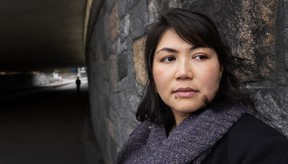
When a little coffee shop came up for sale in 1974 and the Nasiris were short of even a down payment, the owner financed their purchase with an interest-free loan.
From a few curious Kits hippies at the beginning, attracted by the restaurant’s vegetarian options, there soon grew lineups outside the door. The restaurant moved down the road on Broadway, then expanded and then moved to its current location.
A menu from 1977 featured “juicy chunks” of broiled lamb kebabs marinated in special sauce and herbs, with pakawra for $5; and aushak (Afghan ravioli with chakah) and sabzijat (baked rice, veggies and pakawra) among the five vegetarian dishes on order for under $4.
Advertisement 4
Article content
Desserts were phirni (milk pudding), degcha (rice pudding with nuts) and halwa (a baked dessert with semolina and nuts).
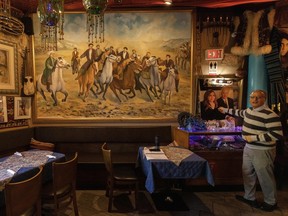
Today’s menu is a lot more expansive, with appetizers such as sabzi mast and mantu; aash and kocha soups; and traditional specialties such as qabeli palaw, bademjan borani and qorma chalaw; along with vegetarian and vegan dishes, dumplings and a bigger selection of desserts.
Throughout the years the couple has helped as many as 200 people who got out of Afghanistan and other countries going through civil strife, giving immigrants and refugees work and sheltering many of them until they got on their feet.
Some of those people went on to become doctors, pharmacists, accountants or lawyers. One of them, Shah Yusufi, stayed on at the restaurant and today, 44 years after arriving in Vancouver, the 70-year-old is still there, working as the manager.
The Nasiris sponsored him, gave him a roof over his head, hired him.
“They helped me a lot, but not just me,” Yusufi said as he prepared the second-floor restaurant for its 5 p.m. opening.
“Let’s put it this way, sometime when I’m thinking and I want to find somebody that they didn’t help, I can’t find anybody among their family or among their friends.
Advertisement 5
Article content
“They basically have done something for everybody they know, hundreds of people.”
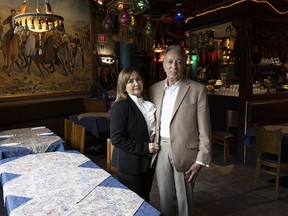
The Nasiris — Zaher is 81, Razia, 74 — are semi-retired now, splitting time between the Afghan Horsemen and California, where their daughter lives. Their son Michael and daughter-in-law Mir look after much of the day-to-day management now.
Both kids were “born and raised” in the restaurant, Razia said, their son arriving before the restaurant opened and their daughter after it was up-and-running.
“I’m so attached to (Afghan Horsemen), I say my first child is Michael, my second child is the restaurant and my third child is my daughter,” Razia said.
A fourth generation of diners, meanwhile, is beginning to show up for dinner.
“I’m wishing the fourth generation, and then the fifth generation,” Razia says. “I’m praying this restaurant stays alive for the people of Afghanistan and for others who (arrive in Canada) and need this job.”
Recommended from Editorial
Article content
Source: vancouversun.com



